Jards Macalé
Birth : 1943-03-03, Rio de Janeiro, Rio de Janeiro, Brazil
History
Jards Anet da Silva (Rio de Janeiro, March 3, 1943), known as Macalé, is a Brazilian composer, singer and actor, known for his influential role in Brazil's tropicália movement in the 1960s.
Description above from the Wikipedia article Nelson Macalé, licensed under CC-BY-SA, full list of contributors on Wikipedia.

himself
"Todas as Melodias" is a sensible journey throught the life and works of one of Brazilian music's biggest artists, Luiz Melodia. Featuring archive footage that goes back to the 1970s, the film presents the musician's cronology from his youth in the neighborhood of Estácio, Rio de Janeiro to his estabilished success.

himself
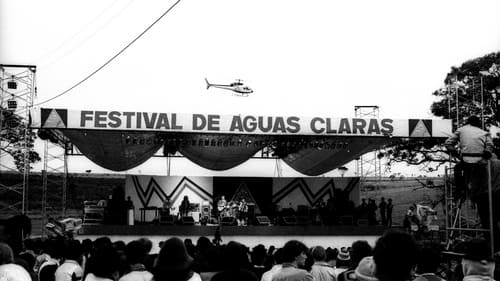
Himself
Participants recall a series of festivals held on a farm in Brazil during the '70s and '80s that evolved into liberating celebrations of music.

Self
Dorival Caymmi was one of the inventors of the Bahian imagination. In his 94 years of life, Caymmi composed, sang, wrote, illustrated and thought about his Bahia, even far from it. His family, partners, friends and fans remember his history, which made him one of the pillars of Brazilian culture.

In early summer, a group of students in Rio das Ostras decide to collectively produce an arts festival. Between work and parties, live the bullshit and delights of university life in a small town. However, the mistaken repercussion of a university event causes a great controversy in social media and directly affects their lives.

Self

Himself
Guitarist Lanny Gordin was one of the fundamental characters in the transformation of Brazilian music from the 1960s onwards. He electrified Gal Costa, Gilberto Gil, Caetano Veloso and Jards Macalé, among others. Lanny reveals his libertarian process of composition and current thinking, embarking on an unusual odyssey through China, his birthplace, and Brazil, the country where he lives.
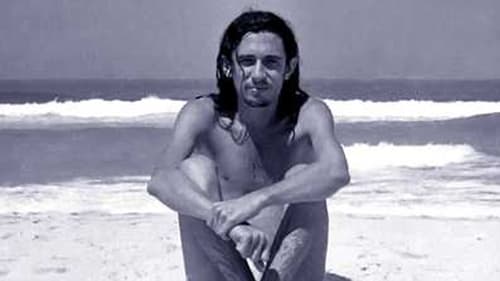
Self (archive footage)
The story of Brazilian poet Torquato Neto, who lived passionately through fracturous times and worked in several fields, including music, journalism, and cinema. He was an active participant in the revolution of Tropicália and marginal art, which changed the course of Brazilian culture in the 1960s and 1970s, until he committed suicide on his 28th birthday.
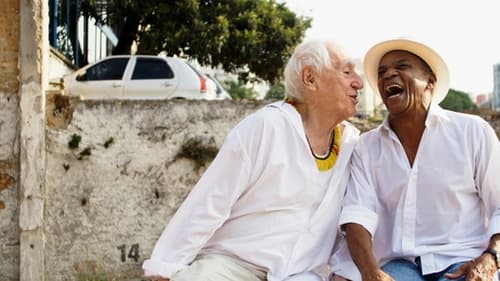
Self
This documentary investigates the aesthetic, political and existential trajectory of emblematic Black Brazilian actor Antônio Pitanga. He career spans over five decades, and he has worked with iconic Brazilian filmmakers Glauber Rocha, Cacá Diegues and Walter Lima Jr. He was a prominent figurehead and outspoken activist during the Brazilian dictatorship, a period of unrest in Brazilian cinema. Pitanga deep dives into the world of Antônio and the history of Brazil. The documentary was directed by his daughter Camila Pitanga, one of widely recognised faces in Brazilian television and cinema right now. The film is also a poem, and a tender ode to fatherhood.

Afonsinho, Paulo Cézar Caju and Nei Conceição started their careers in the mid-1960s, a time of strong political repression in Brazil. Originally teammates of a celebrated generation of the Botafogo football team superstars, they did not give up their freedom when the military dictatorship decided to take control of the field.

Self

Príncipe
The boy Francisco spent his days accompanying his father at work, or rather, on the roads. The man is a driver of the imposing Big Jet, a pickup truck used to clean the city's cesspools without basic sanitation. But the boy is more interested in the ideas of his uncle, a libertarian and anarchist artist. As he discovers his first love, Chico realizes the vocation to become a poet.

Cléo is making her first film, inspired by french cinema and the nouvelle vague.

Himself
The life and work of singer, musician and actor Jards Macalé.

Self (archive footage)
This film documents in depth the life and artistic trajectory of the musician and poet Itamar Assumpção. He was one of the pillars of a moment of Brazilian popular music that was conventionally called "Vanguarda Paulista". Starting from extensive research which resulted in more than 250h of images and a dive into the personal universe of this incredible artist, Itamar comes up with a poetic, intuitive plot where facts and testimonies speak louder than preconceived ideas.

Ele mesmo

Self
Caetano Veloso, Gilberto Gil, Jards Macalé and Jorge Mautner recall important moments during the military dictatorship the befell in Brazil from 1964 to 1985. The film presents the events of the prison, life in exile and the return to the country.

In the 1970s, in the midst of a military dictatorship, composer Jards Macalé and filmmaker Luiz Carlos Lacerda (Bigode) shared a house in Rio de Janeiro - which became a center of convergence for musicians, filmmakers and writers, and where they performed classic films and songs of Brazilian culture.

Short film based on sambas by Moreira da Silva and Jards Macalé, and on Macalé's arrest by the Brazilin military government in the 1970s, while he was touring with Moreira.

Himself
This film shines a light at the story of Jards Macalé, polemic artist and controversial character of Brazilian culture over the last four decades. Author of songs such as "Vapor Barato" and "Movimento dos Barcos", a partner in crime of poet Waly Salomão, guitar player and songwriter for Gal Costa and Caetano Veloso, actor and author of soundtracks in Nelson Pereira dos Santos' films, a personal friend of visual artists Lygia Clarke and Hélio Oiticica, but, first and foremost, someone who dreams of seeing the word "love" in the Brazilian flag.

Original Music Composer
A group of young people is in a bar to drink, and they are trying to choose a story for the movie they are decided to make, but their characters are not very satisfied with the results of it.

A group of young people is in a bar to drink, and they are trying to choose a story for the movie they are decided to make, but their characters are not very satisfied with the results of it.

Documentary on the life and times of one of the most prominent Brazilian samba composers, Cartola (Angenor de Oliveira).
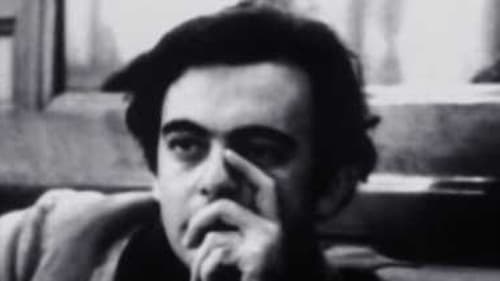
Documentary about Brazilian filmmaker Glauber Rocha, one of the most important names in the Cinema Novo, with interviews with some of his friends and colleagues.

A short film made with unused footage from The Red Light Bandit and Carnaval na Lama.

Poetic documentary about brazilian musician Walter Franco.

Self
A documentary chronicling the life and works of Brazilian poet, songwriter, journalist and avant-garde filmmaker Torquato Neto, from his beginnings to his suicide at the age of 28.

Self (uncredited)
ABC of a Strike captures the 1979 metal workers strikes outside of São Paulo. The footage sat untouched until after the death of highly-regarded director Leon Hirszman in 1987, by which time the material had a new relevance. The gripping film captures the negotiations between the labor unions and the factory bosses and shows the birth of the region’s Worker’s Party, as well as the emergence of its charismatic leader, Luiz Inácio Lula da Silva. Rising from extreme poverty, Lula gained national prominence as a union activist during the late 70s and early 80s. After being jailed during his time as a union leader, he eventually becomes Brazil’s president from 2003 to 2010.
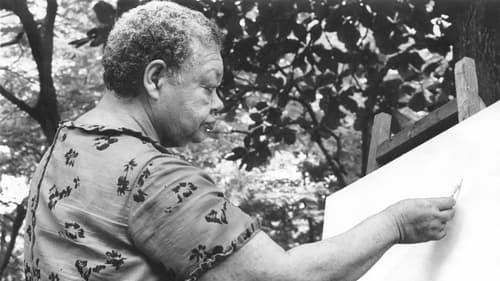
Music Consultant
In hopes of unraveling the causes and cure for various forms of insanity, a psychiatrist in Brazil created the Museum of Images from the Unconscious in 1952. It gathered paintings and drawings made by mental patients from all over Brazil. Many of the works in the museum are paired with the case-histories of the patients who created them in this fascinating film.

Tropicália was a Brazilian cultural movement that occurred between 1967 and 1968, inspired by Oswald de Andrade's anthropophagic ideals, pop art and the concretism. Twenty years later, this film revisits the movement and shows that Tropicalismo will never die.

Documentary about Flamengo, one of the most popular soccer teams in Brazil

Original Music Composer
When a prominent U.S. Nobel Laureate arrives in Salvador, Bahia, the city with the largest black population in Brazil, he stirs emotions by championing a long-forgotten local writer named Pedro Archanjo, who believed that humanity would be improved only through miscegenation.

Pedro (jovem)
When a prominent U.S. Nobel Laureate arrives in Salvador, Bahia, the city with the largest black population in Brazil, he stirs emotions by championing a long-forgotten local writer named Pedro Archanjo, who believed that humanity would be improved only through miscegenation.

As filmmaker Jairo Ferreira shoots his life and friends in Super 8mm he also becomes the vampire of the Cinemateca Brasileira in São Paulo. In O VAMPIRO DA CINEMATECA Ferreira develops a poetic representation of his idea of “inventive cinema” without a plot in the classical sense. Ferreira mixes situations of everyday life in the streets of São Paulo with scenes from classics of film history, which he filmed from television or from a projection with his Super 8 camera. The author as a vampire sucks from various sources – not only in cinema, but also in poetry and music – and creates a portrait of his time.

Music
Documentary on one of Brazil's most controversial personalities: Getúlio Vargas, an ex-president.

Original Music Composer
An ubiquitous folk singer narrates the tale of a young boy, who apparently becomes immune to gunfire after his mother arranges for him to have an amulet bearing Ogum's blessings. As time goes by, he becomes a valuable member of a mobster's hit-team, but ends up joining a group of people who resist his original employers.

Firmino
An ubiquitous folk singer narrates the tale of a young boy, who apparently becomes immune to gunfire after his mother arranges for him to have an amulet bearing Ogum's blessings. As time goes by, he becomes a valuable member of a mobster's hit-team, but ends up joining a group of people who resist his original employers.

A colorful feature film that mixes exile with the figure of the poet Rimbaud and the feminist revolution. "It's super-intellectual. A fable-musical-philosophical-chanchada", Mautner says. He also affirms that the work focuses a lot on the longing for Brazil, on the will that the exiled had to return to their homeland. The idea came from conversations between the musician and his old father, "always talking about the pre-Socratics", he recalls. Glauber Rocha states that "The Demiurge" is the best film "of" and "about" exile.
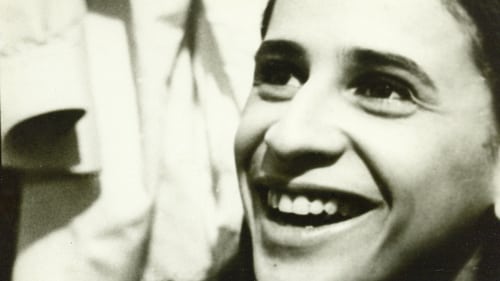
Self
Documentary about Maria Bethânia, at the very beginning of her career as a singer, when she arrived in Rio da Bahia to replace Nara Leão in the show Opinião. Bethânia's appearance, at that time in southern Rio, was a cultural shock that shook the city. The film also contains scenes of her daily life and meetings with other musicians.















